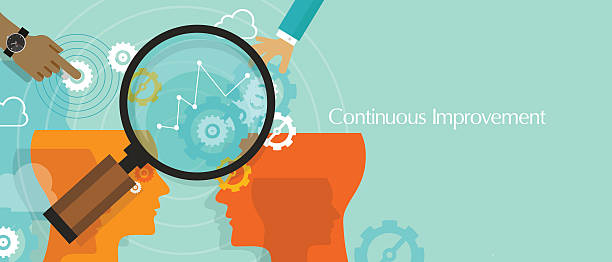
In a previous post (https://www.johnroeguray.com/creating-a-culture-of-continuous-improvement/), I gave a quick look at how to create a culture of continuous improvement – something crucial for any organization or society that seeks to thrive and stay relevant in today’s dynamic and competitive world, and involves a commitment to constant learning, improvement, and growth by embracing new ideas, techniques, and technologies to enhance efficiency, productivity, and competitiveness. However, several beliefs can undermine a culture of continuous improvement, and this article will discuss some of them.
The first belief that can damage a culture of continuous improvement is the fear of change. Many people are often resistant to change, preferring to stick to familiar routines and processes, even if they are not efficient or effective. This fear can be particularly prevalent in organizations or societies that have been around for a long time, and people may cling to traditions and practices that are no longer relevant. Such a mindset can be detrimental to a culture of continuous improvement as it prevents people from being open to new ideas and ways of doing things. This fear can also make it difficult to implement necessary changes, resulting in stagnation and a loss of competitiveness.
Another belief that can damage a culture of continuous improvement is the belief in hierarchy and authority. Some organizations or societies may have a rigid hierarchy that places too much emphasis on rank and status. In such environments, people may be hesitant to suggest improvements or challenge existing practices, particularly if they believe it may upset those in authority. This can create a culture of fear and stifles innovation, creativity, and productivity. A culture that values and encourages input from all levels can create a more dynamic and successful organization.
The belief that failure is unacceptable is another mindset that can damage a culture of continuous improvement. Failure is often seen as a negative outcome that should be avoided at all costs. However, failure is an inevitable part of the learning process, and without it, there can be no progress or improvement. Organizations that embrace failure as an opportunity to learn and grow can create a culture that is more willing to take risks and experiment with new ideas. This mindset can result in breakthroughs and innovations that can propel the organization or society forward.
The belief that competition is a zero-sum game is another mindset that can damage a culture of continuous improvement. Some organizations or societies may view competition as a win-lose scenario, where one party must lose for another to win. This mindset can lead to a reluctance to collaborate or share information, which can hinder progress and innovation. Organizations that view competition as an opportunity to learn from others and improve their own processes can create a culture that values collaboration and mutual growth.
All things considered, a culture of continuous improvement requires a willingness to learn, grow, and adapt to change. Beliefs that stifle innovation, creativity, and collaboration can damage such a culture. Organizations and societies that are committed to a culture of continuous improvement should be aware of these beliefs and actively work to overcome them. By doing so, they can create a culture that fosters innovation, enhances productivity, and improves their ability to compete and thrive in today’s rapidly changing world.

